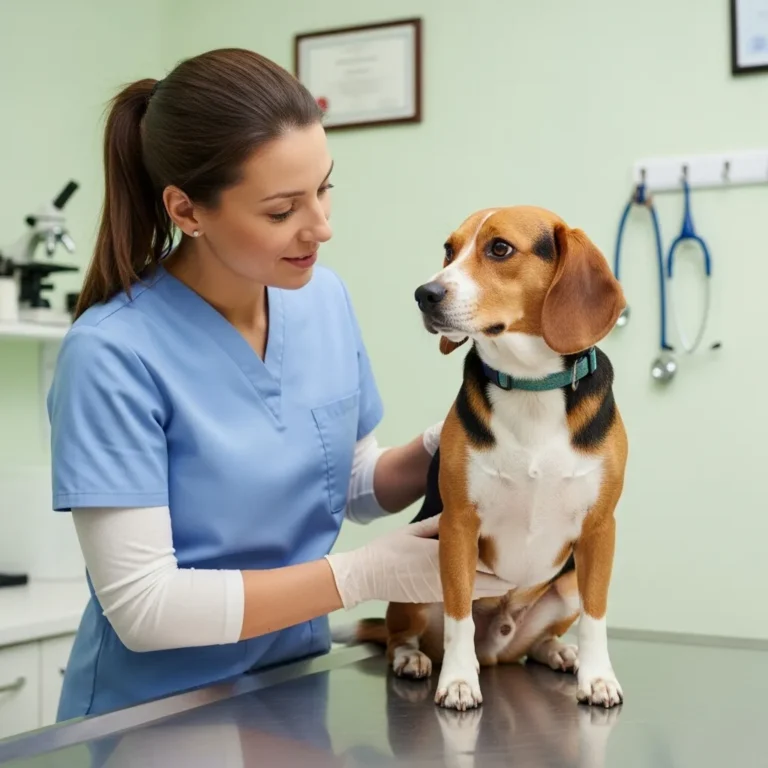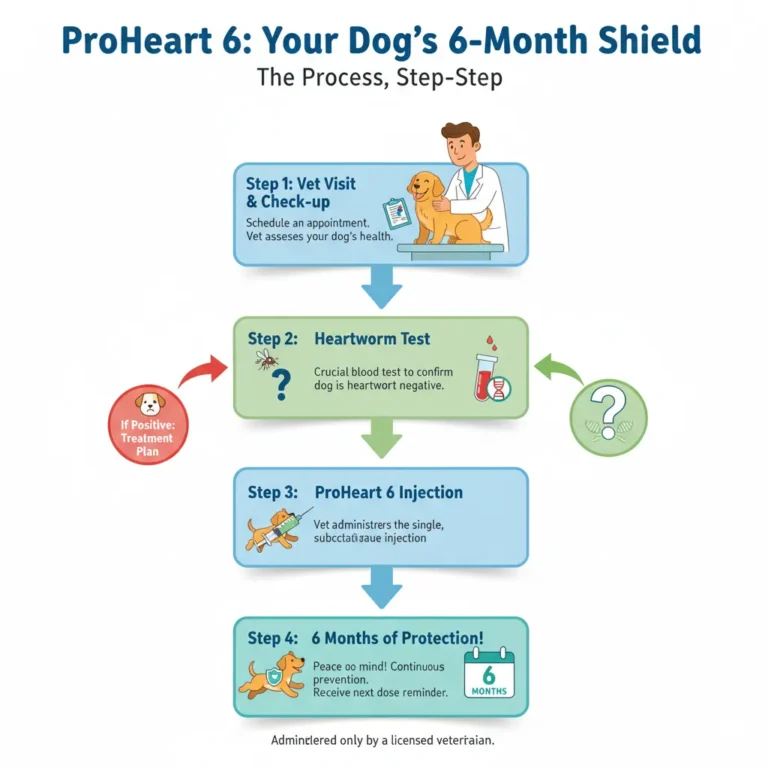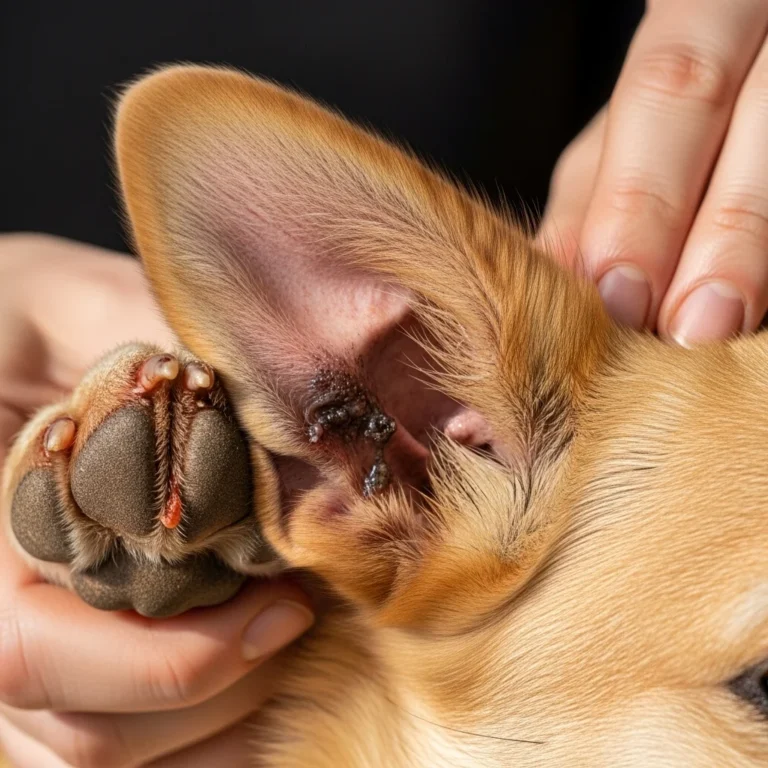
Author: DogsBlogSS Team
⚠️ Disclaimer: This article is for informational purposes only and is not a substitute for consulting a veterinarian.
why is my dog trembling and shaking
When your dog starts trembling or shaking, it can be unnerving. You might find yourself thinking: “Why is my dog trembling and shaking?” It’s a question many pet owners ask at some point, because our four-legged friends can’t just tell us how they feel. So when you see those little or big shivers, you want to know: is it nothing, or something serious? In this article, we’ll walk through the many reasons dogs shake, from the urgent to the everyday, and what you can do about it—kind of like chatting with a friend who’s been through it. Let’s dive in.
I. Immediate Concerns & Urgent Situations
When should I be concerned about my dog trembling?
According to WebMD,A dog trembling now and then may simply be reacting to cold, excitement, or stress. According to WebMD, shivering or trembling can signal anything from feeling cold or excited to pain or serious illness. That said, you should be alert when the trembling is new, severe, or accompanied by other worrying signs (like collapse, vomiting, or loss of coordination). When in doubt, it’s better to check in with a vet rather than assume.
related: Why Is My Dog Vomiting White Foam? Causes, treatment
What are the emergency causes of trembling in dogs?
According to Southeast Veterinary Neurology, Some of the most serious triggers include low blood sugar (hypoglycaemia), poisoning or ingestion of toxic substances, severe pain, and neurological conditions. For example, the Generalized Tremor Syndrome (also known as “white dog shaker syndrome”) is described by a veterinary neurologist, Dr Daniel Blake Webb, as an autoimmune-type inflammation in the nervous system leading to full-body tremors.
According to Veterinary Partner,If your dog has access to toxins like xylitol (in sugar-free gum), nicotine, snail bait, or other dangerous items, trembling might be the early sign of something life-threatening.
My dog is shaking uncontrollably – what should I do?
According to Veterinary Partner, If your dog is shaking uncontrollably, you’ll want to move quickly. First, keep them safe and warm. Remove anything dangerous from the area. Then contact your veterinarian or an emergency clinic immediately. According to the Veterinary Information Network article, “Severe tremors can elevate the body temperature dangerously and cause brain damage.”
Also, it helps if you can note: when it started, what the dog might have eaten or been exposed to, whether they have other symptoms (vomiting, seizure activity, unresponsive), and their general state (alert or not). That information can help vets triage.
Can shaking be a sign of pain in dogs?
According to windermere vet services, Absolutely. Dogs often tremble when they are in pain—even if they hide it well. According to a blog from Windermere Veterinary Services, “Shaking can be a sign of pain among other reasons. Pain is often exhibited through shaking in the hind legs, common in older dogs who have developed joint pain.” So if your dog is trembling and you also notice limping, reluctance to move, or a change in posture, pain could definitely be playing a role—and that means a vet visit is wise.
II. Common Medical Causes
What medical conditions cause dogs to tremble?
According to Southeast Veterinary Neurology,There are many medical reasons why dogs tremble. According to the neurological overview from Southeast Veterinary Neurology: “Tremors in dogs can be caused by something as simple as an emotion or as complex as an illness.”
They go on to list examples of emotional triggers, discomfort responses, and illness‐related tremors. So while medical causes are varied, understanding the context (age, breed, what preceded the trembling) helps narrow things down.
Can hypoglycemia (low blood sugar) cause shaking in dogs?
According to American Kennel Club, Yes. Low blood sugar is a known cause of trembling in dogs—particularly in small breeds and puppies. The American Kennel Club (AKC) notes that “Low blood sugar or hypoglycemia can cause shaking” and this is more common in toy breeds or when the dog hasn’t eaten in a while. If you suspect low blood sugar (especially in little dogs), providing a small amount of honey on the gums while immediately contacting a vet may help—but this is a stop‐gap, not a treatment on its own.
Is shaking a symptom of kidney disease or liver problems in dogs?
According to WebMD, Yes, indirectly. Kidney or liver problems can lead to changes in the body’s metabolism, toxins building up, electrolyte imbalance, or nausea—all of which may produce tremors or shaking. For instance, WebMD lists nausea (from kidney/liver disease) as a possible cause of trembling.
So if the trembling is paired with signs like loss of appetite, vomiting, unusual urine colour, lethargy, or yellowing of the skin/paws/eyes, those organs might be involved.
Can poisoning or toxic ingestion lead to trembling?
According to American Kennel Club
, Definitely. Poisoning is one of the most urgent causes of shaking in dogs. The AKC states that ingestion of items like chocolate, xylitol, and cigarette butts may “cause trembling, seizures, vomiting… and may be fatal.”
According to Veterinary Partner, Also the Veterinary Partner article emphasises that many toxins cause “muscle twitching and tremors” and warns that snail bait containing metaldehyde is especially dangerous.
If your dog might have ingested something harmful, don’t wait—get veterinary help right away.
Do neurological issues cause dogs to shake?
According to Southeast Veterinary Neurology, Yes. Neurological issues—diseases of the brain, spinal cord or nerves—can lead to tremors. The Southeast Veterinary Neurology article explains that tremors may appear because of infections, metabolic disorders, autoimmune diseases, or idiopathic (unknown‐cause) tremor syndromes.
According to Southeast Veterinary Neurology, A specific example is “idiopathic head tremors,” where the dog nods “yes” or “no” with their head but is otherwise fine. The same article explains these do not respond to steroids like other tremor syndromes do.
What is Generalized Tremor Syndrome (GTS) or shaker syndrome?
According to Southeast Veterinary Neurology, GTS, also called “white dog shaker syndrome,” is a condition characterised by whole‐body tremors. The cause isn’t fully understood, but it’s thought to involve inflammation in the nervous system.
According to Southeast Veterinary Neurology Despite the name, it doesn’t only affect white dogs. Treatment often involves corticosteroids, and the prognosis is generally good with treatment.
Can older dogs shake due to age-related conditions?
According to WebMD,Yes. As dogs age, muscle weakness, joint pain (arthritis), thinning coat, loss of body-heat regulation, and other issues can make trembling more likely. WebMD notes that older dogs “may have tremors in their hind legs” as muscle mass decreases.
So if your senior dog is shaking a little more often than before, it could simply be part of ageing—but still worth monitoring with your vet.
Is shaking a sign of an allergic reaction in dogs?
According to petmd,It can be, though less commonly than other causes. Allergic reactions may cause generalized body stress, itchiness, swelling, or pain, and secondary tremors might occur. The PetMD article mentions that itching from allergies can lead to localized shaking (like shaking its head due to ear infection or parasites) which could escalate.
If you see swelling, hives, difficulty breathing, or sudden onset trembling after exposure to a new substance, allergy should be considered.
III. Environmental & Situational Factors
Why does my dog shake when they are cold?
According to The Kennel Club, Just like we shiver when we’re cold, dogs do too. The Kennel Club explains that shivering is a reflex to raise body temperature when a dog is cold.
Dogs with thin coats, very young or old age, or small breeds lose heat faster. So if you take them out on a chilly day and they start trembling, bring them inside, wrap them in a blanket, and warm them up.
Can fear, anxiety, or stress cause a dog to tremble?
According to PetMD ,Yes—without a doubt. Many dogs tremble when they’re scared (thunderstorms, fireworks), anxious (visiting the vet), or stressed (new place, new people). As Dr Daniel Dixon, DVM, puts it: “Stress-related shaking causes trembling of the whole body and generally stops when the stressor is gone.”
If the trembling happens during such a moment and stops when the dog calms, then behavior and emotional state may be the trigger.
Why do dogs shake after exercise or exertion?
According to VEG ER for Pets , Sometimes, after intense play or exercise, your dog may shake. This can be tied to muscle fatigue, overheating followed by cooling, or simply the body releasing tension. The Veterinary Emergency Group article mentions that dogs may tremble when they’re in an excited state and after exertion.If your dog is otherwise healthy, improving hydration and rest may reduce the shaking. But if the shaking is extreme or lasts long, it warrants checking.
Can certain medications cause trembling as a side effect?
According to PetMD Yes—some medications, especially those that affect nerves, muscles, or metabolism, can cause trembling. For example, PetMD notes that certain flea/tick preventives (like isoxazoline products) have been linked to muscle spasms or tremors in predisposed dogs.
If your dog recently started a new drug and then began trembling, mention this to your vet—they may need to adjust or switch the medication.
Why does my dog shake during thunderstorms or fireworks?
According to The Kennel Club This is a classic fear/anxiety scenario. Loud noises, unpredictable flashes of light, smells in the air—they can all trigger a dog’s survival instincts. The Kennel Club states this is an adrenaline‐driven response tied to fear.
If you know your dog reacts this way, setting up a safe, quiet space, using soundproofing or calming aids, and practising gradual desensitization can help.
Do small dog breeds shake more than large breeds?
According to American Kennel Club, Often yes. Small breeds tend to have less body mass, thinner fur, and faster shifts in body temperature. The AKC mentions toy and small breeds being more vulnerable to low blood sugar (which causes shaking).
Also, smaller dogs might feel colder more easily, or overexcited/exerted more rapidly, leading to more frequent trembles.
IV. Behavioral & Emotional Aspects
Why does my dog shake when excited or happy?
According to American Kennel Club, It might look odd at first, but yes—a dog can shake simply because they’re overjoyed. The AKC gives this example: sometimes your dog trembles when it sees you coming home, as the excitement overwhelms them. This kind of shaking is usually short-lived, ends when they calm down, and is accompanied by happy body language (wagging tail, relaxed eyes, eager posture). So often it’s nothing to worry about.
Is shaking a sign of submission or nervousness in dogs?
According to Port City Veterinary Referral Hospital , Sometimes. Nervousness, submissive behaviour, or a lack of confidence can manifest as trembling. For instance, a dog might shake when meeting someone new or in a situation where they feel vulnerable. The Port City Vet blog mentions that shaking from fear or anxiety is common and often comes with other stress signals (ears back, panting, hiding) rather than full-bodied excitement.
If the trembling happens in social situations, it can help to work on confidence building or seek a behaviourist for help.
Can dogs shake from dreaming or during sleep?
According to VEG ER for Pets,Yes. Sometimes a dog’s tremble isn’t about disease or fear—it may simply be dreaming. According to the Veterinary Emergency Group page, dogs may shake or twitch while sleeping or transitioning between sleep phases. If your dog is otherwise fine, the trembling only happens during sleep, and they wake up and act normal, this is likely benign. But if shaking during sleep is prolonged, very strong, or accompanied by other symptoms, it might warrant a check-in with the vet.
V. Diagnosis & Treatment
What tests will a vet perform to diagnose the cause of trembling?
According to Southeast Veterinary Neurology, When you bring your dog in, the vet will typically start with a comprehensive exam and history: when the shaking began, what preceded it, breed, age, possible exposures, medications, etc. The Southeast Veterinary Neurology article lists diagnostics: physical and neurological exam, lab work (CBC, chemistry panel, urinalysis), chest X‐rays (heart/lungs), abdominal ultrasound, MRI, cerebrospinal fluid (CSF) analysis, and infectious disease testing.
Less complex cases may need fewer tests, but making sure the big issues are not missed is key.
How is trembling treated in dogs, depending on the cause?
Treatment depends entirely on the underlying cause. For example:
- According to American Kennel Club, If it’s low blood sugar: feed or treat accordingly and adjust diet. The AKC mentions administering a small amount of honey while getting to the vet.
- If cold/shivering: warm them up and monitor.
- According to WebMD, If pain/arthritis: treat with appropriate pain relief, joint support. WebMD notes that arthritis in older dogs can lead to tremors and should be managed accordingly.
- If poisoning/toxin: immediate decontamination, vet care, possibly hospitalization.
- According to Southeast Veterinary Neurology, If GTS/shaker syndrome: corticosteroids are commonly used (for example prednisone) and prognosis is generally good with treatment. ]
- If anxiety/stress: behaviour modification, safe spaces, calming techniques, and possibly medication if advised by a vet/behaviourist.
Are there home remedies for a dog that is shaking?
Yes—especially when the cause is non-urgent (cold, excitement, mild anxiety). Some helpful steps:
- Make sure your dog is dry, warm, and comfortable (especially small or thin-coated dogs).
- According to WebMD, Create a safe, quiet space for them when they’re frightened (thunderstorms/fireworks). WebMD suggests a “safe space” like a bed or crate with positive associations.
- According to WebMD, Distract them with toys, treats or gentle massage when the shaking is due to stress or excitement. WebMD recommends long strokes from neck down to calm them.
- Maintain a consistent feeding schedule, avoid skipping meals (especially in small breeds).
- Keep toxins out of reach, and know emergency contacts (e.g., pet poison helpline).
However, home remedies are not substitutes for veterinary care if the shaking is unexplained, severe, persistent, or accompanied by other concerning symptoms.
What can I do to comfort a trembling dog?
You can do a lot in terms of comfort:
- Be calm yourself—dogs pick up on your tone and energy. Speak softly, pet them gently.
- Warmth: blankets, a warm (but safe) environment.
- Distraction: a favourite toy or treat, especially if the cause is mild anxiety or excitement.
- Reassurance: let them know they’re safe, but avoid overstimulating them (which can make anxiety worse).
- Monitoring: keep an eye on what triggers the shaking, when it happens, how long it lasts. That info can help your vet.
- Professional help: if shaking happens repeatedly in certain situations (thunderstorms, new places), you might consider behaviour training or speaking to a veterinary behaviourist.
Final thoughts
Seeing your dog tremble can trigger worry—and rightfully so. But the good news is, many causes are harmless or manageable when caught early. By knowing what why is my dog shaking and trembling might mean, you’re already doing one of the best things: paying attention. When in doubt, get veterinary advice—because a quick check-in may prevent something small from becoming big. And meanwhile, you’ll be there, ready with warmth, comfort, and support for your furry friend.
Notice : The DogsBlogSS editorial team is dedicated to providing accurate, research-based information about dog health, behavior, and care. All our articles are fact-checked using trusted veterinary sources such as VCA Hospitals, Merck Vet Manual, and the AKC.
you may like it





sources
- https://www.akc.org/expert-advice/health/why-is-my-dog-shaking/
- https://www.petmd.com/dog/symptoms/why-is-my-dog-shaking
- https://vcahospitals.com/know-your-pet/trembling-or-shaking-in-dogs
- https://www.veterinarians.org/dog-shaking/
- https://thewildest.com/dog-health/why-dogs-shake
- https://www.aspca.org/pet-care/dog-care/common-dog-health-issues
- https://vet.cornell.edu/departments-centers-and-institutes/cornell-university-hospital-animals
- https://www.pethelpful.com/dogs/why-is-my-dog-shaking


